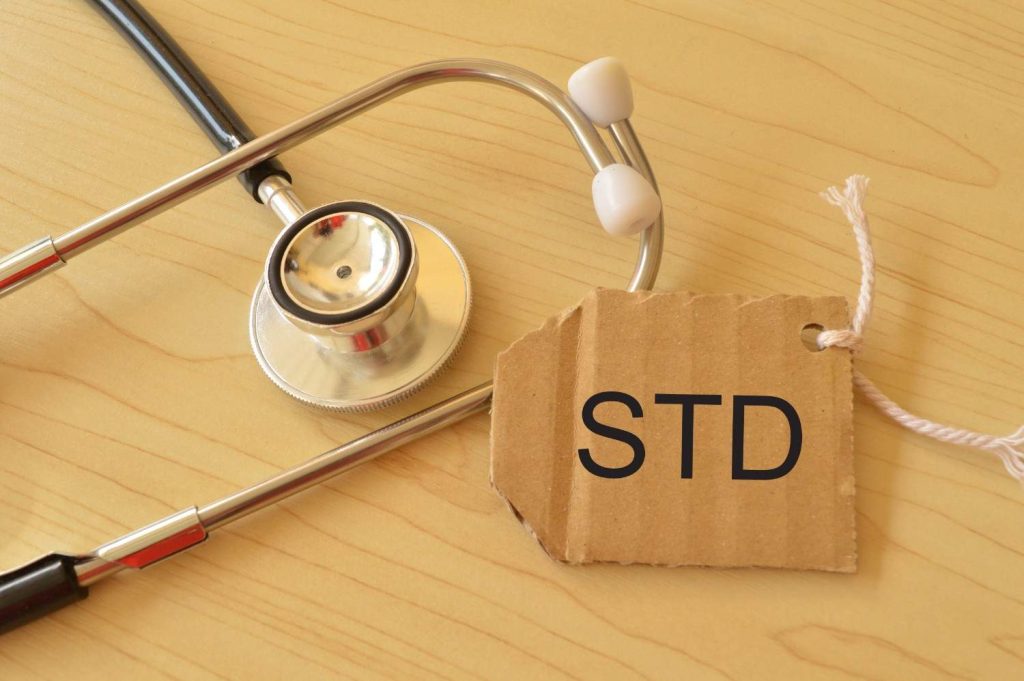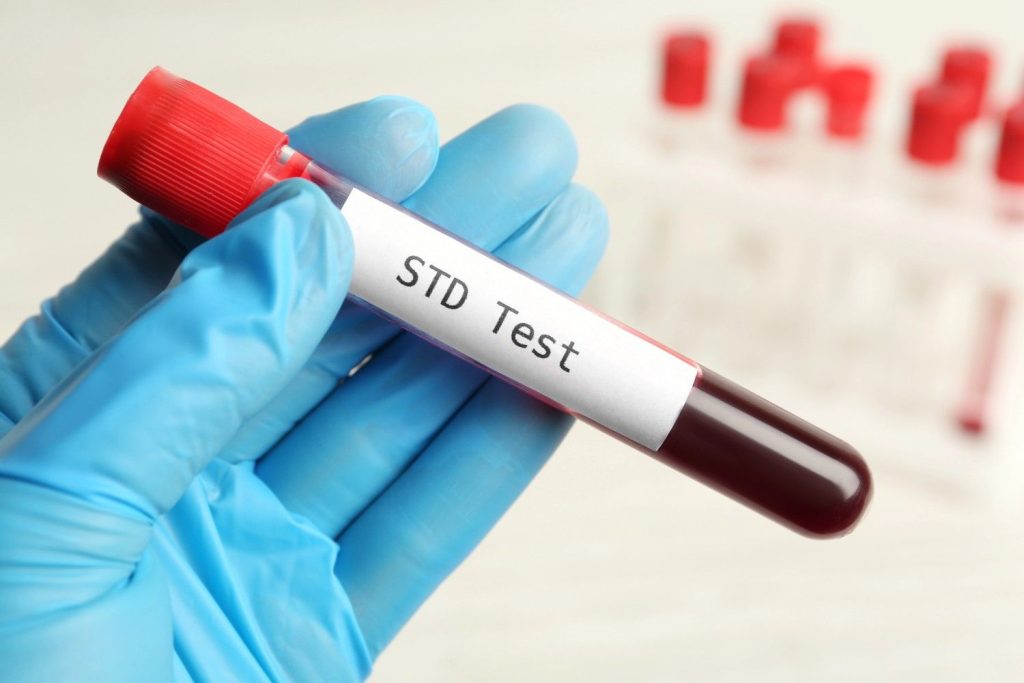What Is STD Testing?
July 29, 2025
STD testing is a medical process that checks for the presence of sexually transmitted infections (STIs) in the body. These infections can be caused by bacteria, viruses, or parasites and may be transmitted through vaginal, anal, or oral sex, as well as skin-to-skin contact.
Testing is not just for people with symptoms. Since many STDs can be silent for weeks, months, or even years, testing plays a central role in preventing complications and protecting sexual partners.At Advanced STD Testing & Treatment Clinic in Gulfton, we make sexual health a priority by offering confidential, affordable, and professional testing services—helping you take charge of your well-being with ease and discretion.
Why STD Testing Matters
Many individuals live with STDs unknowingly due to the absence of visible symptoms. Without testing, these infections can remain in the body and cause health problems like infertility, pelvic inflammatory disease (PID), neurological damage, liver complications, or increased vulnerability to other infections like HIV.
Testing also helps to:
- Stop transmission to partners.
- Begin treatment early before symptoms worsen.
- Build trust in relationships through transparency.
- Support public health efforts by reducing undiagnosed cases.
Who Should Get Tested?
Even if you feel healthy, testing might still be recommended. You should get tested if:
- You’ve had unprotected sex.
- You’re entering a new relationship.
- You have multiple partners.
- You’re experiencing genital symptoms (discharge, sores, odor, discomfort).
- You’ve been informed that a partner tested positive.
- You’re pregnant or planning to become pregnant.
Our clinic provides a judgment-free space where you can be proactive about your health.

Types of STD Tests Available
The testing method used often depends on the type of infection and the area of concern. At Advanced STD Testing & Treatment Clinic, we use a combination of the following:
1. Urine Tests
Urine testing is one of the most common and non-invasive methods. It’s often used for:
- Chlamydia
- Gonorrhea
The process is simple: you provide a urine sample, which is analyzed in the lab to detect bacterial DNA. This method is especially popular for routine screening due to its ease and speed.
2. Blood Tests
Blood tests are used to diagnose viral infections and some bacterial ones, such as:
- HIV
- Syphilis
- Hepatitis B & C
- Herpes (in some cases)
These tests can detect antibodies (immune response) or antigens (virus itself), depending on the stage of infection. Blood testing is especially useful when symptoms are not visible or when early detection is important for treatment or prevention.
3. Swab Tests
Swab tests involve collecting a sample using a sterile cotton swab from the affected area, such as:
- Vaginal canal
- Throat
- Rectum
- Sores or blisters
Swabs are crucial when symptoms are localized, or when a partner has tested positive. They’re commonly used to detect herpes, gonorrhea, HPV, and bacterial vaginosis, among others.
4. Physical Examinations
If visible symptoms are present—like sores, warts, or unusual growths—our clinicians may conduct a visual exam. In some cases, a pelvic or genital exam is performed to check for signs of infection or irritation.
Physical exams are sometimes needed alongside lab tests to make a more accurate diagnosis.
Common STDs That Are Tested
Knowing which STDs are typically tested can help you understand what’s being checked during your visit. Most people receive a “panel,” or group of tests, covering the following:
Chlamydia
- Caused by Chlamydia trachomatis (a bacterium).
- May cause discharge, burning urination, or pelvic pain.
- Often asymptomatic in early stages but easily treatable.
Gonorrhea
- Caused by Neisseria gonorrhoeae.
- Can infect the genitals, throat, and rectum.
- Symptoms include yellow/green discharge or testicular pain.
Syphilis
- A multi-stage bacterial infection.
- Early signs include painless sores; later stages can harm the brain and organs.
- Diagnosed with a simple blood test.
HIV
- A virus that damages the immune system.
- Early detection allows for effective treatment to reduce viral load and transmission.
- Confirmed through a combination of antibody and antigen tests.
Herpes (HSV-1 & HSV-2)
- Can cause cold sores (HSV-1) or genital sores (HSV-2).
- Symptoms include painful blisters, tingling, or itching.
- Diagnosed via swabs or blood tests if no sores are present.
Hepatitis B & C
- Both target the liver and can become chronic.
- Transmission can occur through sexual contact or blood exposure.
- Blood testing helps detect active infections or immunity status.
HPV (Human Papillomavirus)
- The most common STD worldwide.
- Some strains cause genital warts, others increase cancer risk.
- Detected via Pap smears or visual examination; blood testing is not standard.
What to Expect During STD Testing
At Advanced STD Testing & Treatment Clinic, the experience is discreet and professional from start to finish.
Step-by-Step Process:
- Initial Consultation – You’ll discuss symptoms, recent activity, and any concerns with a provider.
- Sample Collection – Based on your profile, we’ll collect urine, blood, swabs, or conduct an exam.
- Lab Analysis – Samples are sent to certified labs for accurate processing.
- Results – Results are available within 1–5 business days depending on the tests performed.
- Follow-Up – If needed, treatment is provided on-site or prescribed. Counseling and prevention advice are offered.
Most appointments take less than 30 minutes, and walk-ins are welcome.

How Often Should You Get Tested?
There is no one-size-fits-all answer, but here are general recommendations:
- Once a year – For most sexually active adults.
- Every 3–6 months – For people with new or multiple partners.
- Immediately after unprotected sex – If you suspect exposure.
- During pregnancy – To protect both mother and child.
Testing frequency should match your sexual lifestyle. Talk to a provider about what makes sense for you.
STD Testing for Specific Groups
Men and People with Penises
Testing includes:
- Urine samples
- Blood tests for viral infections
- Swabs from the rectum or throat (if applicable)
This group may show fewer early symptoms, so regular testing is key.
Women and People with Vaginas
Testing may involve:
- Urine and blood samples
- Pelvic exams
- Cervical swabs
Regular screenings are particularly important to catch infections that may affect fertility.
Pregnant Individuals
Testing is recommended early in pregnancy and may be repeated later, especially if risk factors are present. STDs during pregnancy can lead to complications like preterm birth or infections in the newborn.
Symptoms That May Prompt Testing
Don’t ignore these signs:
- Burning during urination
- Unusual vaginal or penile discharge
- Painful intercourse
- Genital itching, sores, or warts
- Swollen lymph nodes
- Pelvic or testicular pain
Even minor symptoms can signal an infection. When in doubt, get tested.
Confidentiality and Peace of Mind
We know sexual health can feel personal. At Advanced STD Testing & Treatment Clinic, confidentiality is our standard. Your results and records are protected, and our staff is trained to provide respectful, inclusive care.
There’s no judgment—only support and solutions.
STD Testing Myths and Misconceptions
“I’m not showing symptoms, so I must be healthy.”
False. Many STDs stay hidden but continue to spread and cause damage internally.
“Testing takes too long or is uncomfortable.”
Most tests are fast, simple, and over in a few minutes. Many results are returned within a few days.
“I got tested last year, I’m good forever.”
Not necessarily. You can get re-infected, especially with new partners or unprotected sex.
“Only people with multiple partners need testing.”
One exposure is enough to contract an STD. Testing is for anyone who is sexually active.
What Happens After a Positive Test?
A positive result is not the end of the world. Here’s how we help:
- Immediate treatment (e.g., antibiotics or antivirals)
- Partner notification guidance (if requested)
- Emotional support and health counseling
- Ongoing care and follow-up
Many infections are completely curable; others are manageable with proper care.
STD Prevention Tips
To reduce your risk of infection:
- Use condoms or dental dams every time
- Get tested regularly
- Limit number of sexual partners
- Talk openly with partners about health status
- Avoid sex when you or your partner has symptoms
- Get vaccinated for HPV and hepatitis B
STD prevention starts with awareness, communication, and routine testing.
Advanced STD Testing & Treatment Clinic: Your Trusted STD Testing Provider in Gulfton
When it comes to your sexual health, you deserve care that is fast, discreet, and professional. That’s exactly what you’ll find at Advanced STD Testing & Treatment Clinic in Gulfton.
We provide comprehensive STD testing services in a judgment-free, confidential environment. Whether you’re experiencing symptoms, starting a new relationship, or simply being proactive, our clinic offers affordable testing options for a wide range of STIs, including chlamydia, gonorrhea, HIV, herpes, syphilis, and more.
Why Choose Us?
- Confidential & Private Testing: Your results and information are always handled with care and discretion.
- Fast & Accurate Results: Know your status quickly with prompt lab testing and results you can trust.
- Compassionate Professionals: Our skilled healthcare team is here to guide you with understanding, not judgment.
- Affordable Options: Quality care shouldn’t break the bank. We offer competitive pricing and flexible packages.
Serving the Heart of Gulfton
Located conveniently in the Gulfton area, we make it easy for you to take charge of your health without stress or delay. Whether you need routine testing or have specific concerns, we’re here to support your well-being every step of the way.
Take the First Step Today
Don’t wait for symptoms. Don’t second-guess your health. Visit Advanced STD Testing & Treatment Clinic in Gulfton and get the answers and peace of mind you deserve.
Advanced STD Testing & Treatment Clinic Serving the Gulfton Community and Beyond in Houston
Advanced STD Testing & Treatment Clinic is dedicated to serving the diverse needs of the local community of Houston, including individuals residing in neighborhoods like Gulfton. With its convenient location near landmarks such as the Burnett Bayland Park and major intersections like Gulfton St. & Renwick Dr. (coordinates: 29.7212006072987, -95.48863214913519), we offer STD testing Houston services.
Get STD testing Houston at Gulfton Now
Navigate from Gulfton to Advanced STD Testing & Treatment Clinic Now
Conclusion:
STD testing is about staying informed, protecting your health, and caring for your partners. It’s quick, private, and available at Advanced STD Testing & Treatment Clinic. Whether you’re experiencing symptoms, starting a new relationship, or simply want reassurance—our team is here to help.Schedule your confidential appointment today and move forward with confidence and peace of mind.
Frequently Asked Questions (FAQs)
1. How do I know which STD test I need?
The right test depends on your sexual activity, symptoms, and history. At Advanced STD Testing & Treatment Clinic, a healthcare provider will discuss your risk factors and recommend specific tests such as urine, blood, or swab samples based on your needs. Common panels test for chlamydia, gonorrhea, HIV, syphilis, herpes, and hepatitis.
2. Can I get an STD even if I don’t have symptoms?
Yes. Many STDs, such as chlamydia, gonorrhea, and herpes, can be asymptomatic—meaning you might have the infection without showing any signs. That’s why routine testing is so important, even if you feel completely healthy.
3. How often should I get tested for STDs?
It depends on your sexual activity. Most sexually active people should be tested at least once a year. If you have multiple partners, new partners, or don’t always use protection, testing every 3 to 6 months is recommended. Testing is also important before starting a new relationship or during pregnancy.
4. Is STD testing confidential at your clinic?
Absolutely. Advanced STD Testing & Treatment Clinic prioritizes your privacy. All patient information, results, and consultations are handled discreetly and securely. We offer a respectful, judgment-free environment for all clients.
5. What happens if I test positive for an STD?
If you test positive, our clinic provides immediate support. You’ll receive a clear explanation of your results, treatment options, and guidance for informing partners (if needed). Most STDs are treatable, and some are completely curable. We’ll also help you plan follow-up care and prevention strategies.
